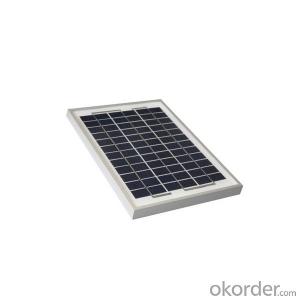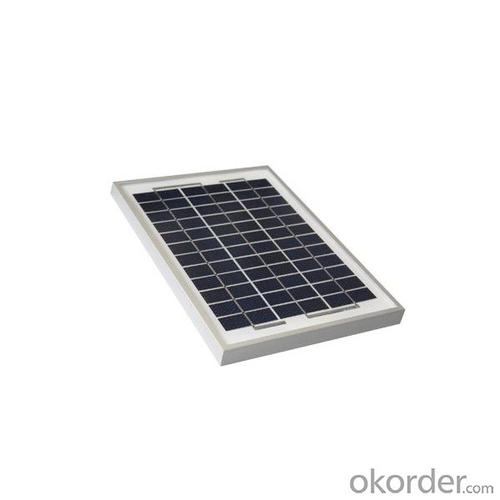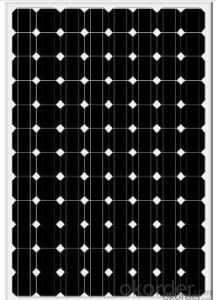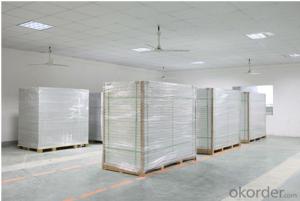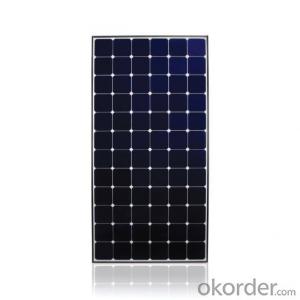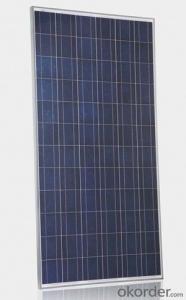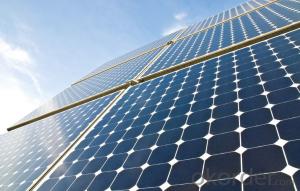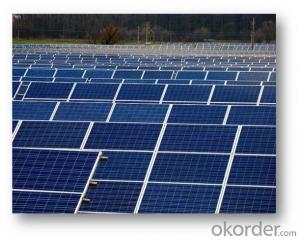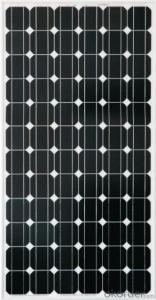Gp Solar Panels 5W Monocrystalline Solar Module for Sale
- Loading Port:
- Shanghai
- Payment Terms:
- TT OR LC
- Min Order Qty:
- 10000 watt
- Supply Capability:
- 1000000 watt/month
OKorder Service Pledge
OKorder Financial Service
You Might Also Like
Specification
Product Description
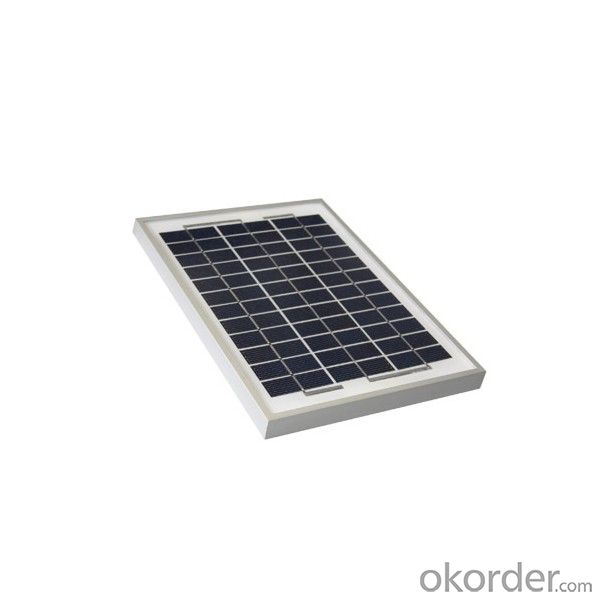
5w monocrystalline solar module
Product Description
Mechanical Characteristics | |
| Cell type | mono-crystalline silicon solar cells |
| Cell layout | 2*18 |
| Number of cells | 36pcs |
| Module dimensions | 265*200*25mm |
| Frame | anodized aluminum,grey or black |
| Junction box | IP65 |
| Connectors | MC4 or MC4 compatible(optional) |
| Net weight | 0.75kg |
| Packing | 10pcs/ctn |
| Electrical Characteristics | |
| Peak power(Pmax) | 5W |
| Power tolerance | ±3% |
| Max.system voltage | 715VDC |
| Open circuit voltage(Voc) | 21.5V |
| Short circuit current(Isc) | 0.32A |
| Max.power voltage(Vmp) | 17.5V |
| Max.power current(Imp) | 0.29A |
| Temperature coefficients of Isc | 0.035%/ºC |
| Temperature coefficients of Voc | -0.33%/ºC |
| Temperature coefficients of Pmax | -0.43%/ºC |
| Cell Efficiency | ≥17% |
| FF | 73% |
| Standard Test Condition(STD) | Irradiance:1000W/m²;Cell temperature:25ºC;AM:1.5 |
Features:
1) High reliability with guaranteed +/-3% output power tolerance
2) The modules can withstand high wind-pressure, snow loads and extreme temperatures
3) Bypass diodes to minimize power loss with shading
4) High and stable conversion efficiency to ensure the highest quality
Quality and Safety
1) Industry leading power output warranty, 25 year 80%, 10 year 90% power warranty and 3 year power warranty
2) ISO9001: 2008 (Quality Management system) certified factory
3) Product Quality warranty & products Liability Insurance to guarantee and user' benefits
EN 6100-6-3: 2007 EN 6100-3-1: 2007(IEC 61000-4-2: 2008
Our advantages:
High quality materials: High insulation TPT, Anti-aging EVA
Focus on each process during manufacture
Experienced engineers and workers
Fast delivery: 7-15 DAYS High efficiency and long time warranty
- Q: Making a solar panelI know there was a recommended wattage for the soldering iron but i cant rememberdoes anyone know?
- Temperature controlled soldering irons like Weller are best. They don't burn up if left turned on.
- Q: We are considering getting solar panels for our home just south of Birmingham, AL. We know a little and are trying to educate ourselves the best we can. But we are having a hard time finding anyone around this area. We have done the yellow page thing, and some quot;green places around town. But to no luck.....
- Any electrical contractor could likely install them, and there are several Internet businesses that sell solar panels. You likely have no place there to get the kind of large panels you need for a house. Look at your local regulations. Your utility may not allow grid-tie, so you may have to set up an off-grid system with batteries and use separate wiring or a transfer switch. One thing a lot of people neglect is hail protection. In Birmingham, you're likely to have large hail (larger than golf ball size) every couple of years in the spring. You need to work out a way of covering them in advance of severe weather. Most panels will take up to golf-ball size hail with no problem. DK PS, I've done this myself, and have considerably more information. Email if you're interested.
- Q: So, I've seen cheap solar panel kits for sale from Harbor Freight, and regardless of whether or not I were to buy a set from them or someone else, I was wondering what the process of implementing a small-scale solar system into your household electrical system would be.I've read articles that started out too in-depth or were speaking of systems on a much larger scale.Can it be as easy as buying the panels and inverter, and plugging it into a socket, or is there more to it?Some of the articles I was reading had mentioned having to contract with your electrical supplier, having to have an electrician tie it all in in some special/ necessary way, using a battery pack (would this be necessary for a tied-in system?), or using the system to only power single items, like a water heater, or plugging items into a connected battery-pack, all of which I'm not sure is necessary or needed for what my goals/ means are/ would be.
- Grid tie inverters are expensive, but you might find a used one cheap on E-Bay, Crags list. Almost any grid tie inverter will work as you are thinking low power, but it likely needs to be 50 hertz or 60 hertz, which ever you have, and 230 volts ac or 20 volts ac which ever you have. It will work for a range of dc voltages, so your solar panels need to produce voltage near the center of that range. I considered buy the 3 PV panel set of 5 watt panels that Harbor freight sells. but I did not determine if the three panels can be conveniently connected in series to produce about 50 volts at light loads, or 00 volts if you buy two sets. You probably do not need the load controller, that comes with each set. I think most grid tie inverters automatically adjust to the dc voltage you supply them, unless it is below some minimum such as 50 volts. It is illegal to connect ordinary inverters to the power company, but they will probably not notice a small system unless you burn your house down. Most inverters will phase lock with the power companies frequency, but they are not designed to do that, so bad is likely unless you connect a resistor such as 0 ohms at 00 watts in series with the ac out of the inverter. If the resistor smokes you should disconnect promptly, then try again to see if you can get phase lock quickly. No smoke, likely means you are one of about 000 co-generators on the electric grid, You can short out the resistor with short piece of very fine wire which will hopefully melt if something goes wrong, such as the power company not sending electricity for 0. seconds or longer. Nearly all inverters have an over load feature, so the thin wire is a back up. Please be careful as people sometimes don't survive an electric shock at 20 volts.
- Q: Rated in kilowatts, what is the maximum output of one 8 by 0 solar panel? Assume this solar panel is located at the equator for maximum sunlight.
- The world record efficiency for a solar panel is about 42%. At the equator, you can get up to about 000W m^-2. The efficiency of commercial cells tends to range from 0-20%. They're almost all single junction cells, so will never exceed 3% efficiency. To work out your maximum power output, multiply 000 x efficiency (as a decimal) x area covered. So an 8m x 0m solar panel would be 80 square metres. At 5% efficiency its peak output would be 2000W or 2kW. Total energy output will be different, since it won't be maximum power output all the time. In fact, it will more likely generate something like 20% of its maximum theoretical output, since the Sun won't always be overhead (and sometimes it's night!). The 2kW panel above might have a mean output of 2.4kW, or 57.6kWh/day.
- Q: I want to get a solar panel to run a fan (or two) for swamp coolers.I'm not looking to power 20box fans, just maybe some of those auto fans.What the heck kind of panel do I need? What is a power inverter and what does it do?Will I lose all my power if I use a 00' extension cord?How do I choose what I'm going to need?
- Any fan you find in a store is going to expect AC, not DC, which is what solar panels produce. An inverter changes DC to AC. You'll probably want a deep cycle car battery to smooth out overages and underages. Any fan will tell you how many watts it uses. Panels should (i haven't looked) tell you how many watts they produce. Just off hand, I'd guess you're looking at a 2'x4' panel. Considering how much you'll be paying for the rest of the stuff, a good 00' cord is appropriate,. Last, it's worth the experience, but you'll never recover the cost of everything that you'll have to buy. Have fun.
- Q: I'm going to pitch an idead to my school about switching to Solar Energy. What are positive and negative effects of the solar panels?Also what is the cost for installing them into a highschool?How much would the electricity bill decline afterwards?
- Solar panels can convert sunlight into electricity which can be used in daily life,solar panels utilize sunrays,it doesn't discharge any polluted gas,it is environment friendly,it is also cost effective,you can make money by sell the surplus electricity to your country, On question is that solar panles have to be use in where sun is abundent.
- Q: Can solar panels be installed on bus stops or shelters?
- Yes, solar panels can be installed on bus stops or shelters. This allows them to generate electricity from sunlight, which can be used to power lighting, signage, and other amenities at the bus stops or shelters. It also helps in reducing reliance on grid electricity and promotes the use of renewable energy sources.
- Q: What is the impact of roof age on solar panels' efficiency?
- The impact of roof age on solar panels' efficiency can vary. Older roofs may have structural issues that could affect the installation and performance of solar panels. Additionally, older roofs may require repairs or replacement in the near future, which could lead to the need for temporarily removing and reinstalling the solar panels. However, if the roof is well-maintained and structurally sound, the age alone may not significantly impact the efficiency of the solar panels. It is important to assess the condition of the roof and consult with a solar professional to determine the best course of action.
- Q: Can solar panels be used to charge electric vehicles?
- Yes, solar panels can be used to charge electric vehicles. By harnessing the energy from the sun, solar panels can convert sunlight into electricity, which can then be used to charge the batteries of electric vehicles. This provides a sustainable and environmentally friendly way to power electric vehicles.
- Q: Are there any restrictions on installing solar panels in certain areas?
- Yes, there may be restrictions on installing solar panels in certain areas. These restrictions can vary depending on local regulations, homeowner association rules, and building codes. Some areas may have permit requirements, aesthetic guidelines, or zoning restrictions that limit the placement, size, or visibility of solar panels. It is important to research and comply with these regulations before installing solar panels in any specific location.
Send your message to us
Gp Solar Panels 5W Monocrystalline Solar Module for Sale
- Loading Port:
- Shanghai
- Payment Terms:
- TT OR LC
- Min Order Qty:
- 10000 watt
- Supply Capability:
- 1000000 watt/month
OKorder Service Pledge
OKorder Financial Service
Similar products
Hot products
Hot Searches
Related keywords
